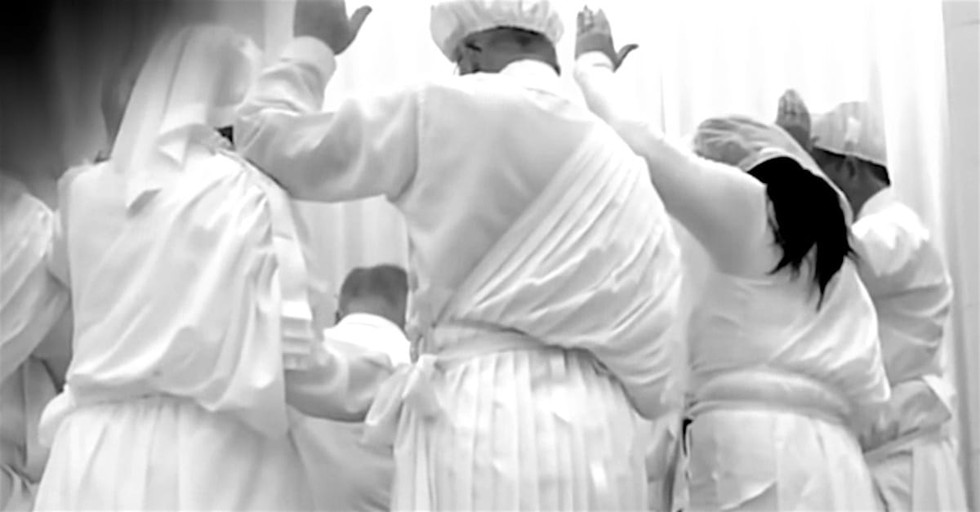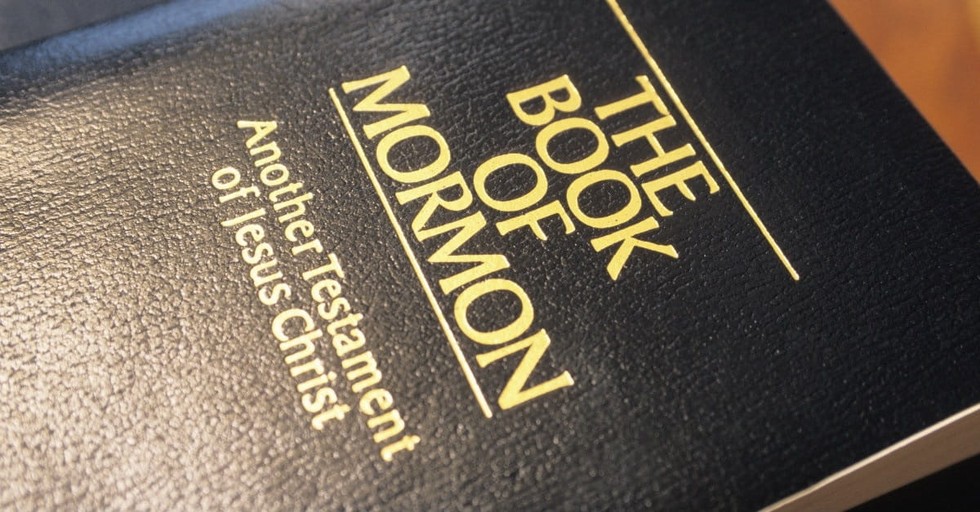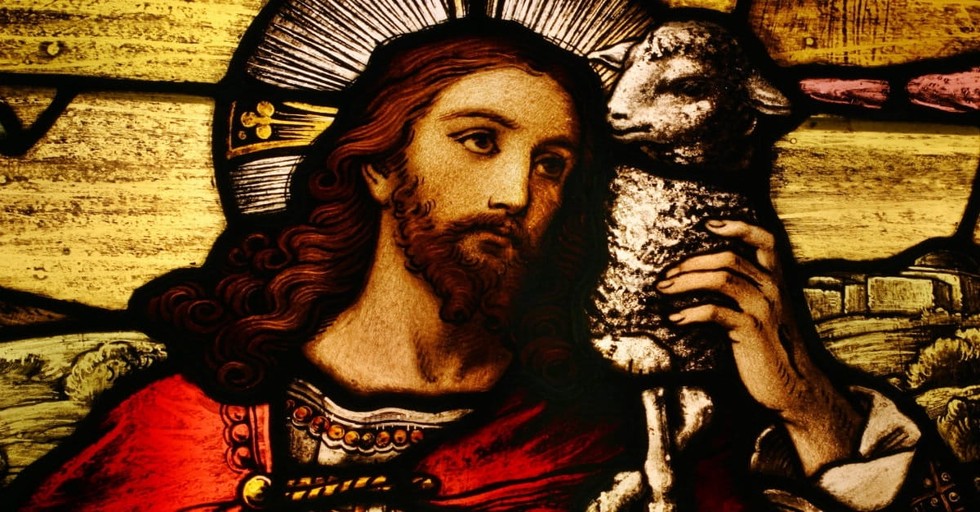7 Things You Need to Know about Mormon Prophets
- Eric Davis TheCripplegate.com
- Published Apr 26, 2019

[January 16, 2018], a new prophet of the 16-million-member Mormon church was announced. Ninety-three-year-old Russell Nelson will now serve as the 17th prophet and president of the LDS faith. Nelson was set apart and ordained for the position on Sunday, January 14th, at the Salt Lake City temple. The announcement came in a live-streamed broadcast from the temple yesterday morning. Joined by newly selected First Counselor, Dallin Oaks, and Second Counselor Henry Eyring, Nelson gave a short address followed by questions from various individuals from the press. In his earlier days, Nelson was an accomplished cardiothoracic surgeon, having helped pioneer various advances in the field. He then has served as a Mormon apostle since 1984.
For those less familiar with the process, this brings up a few questions: What is the position of prophet in Mormonism? What is the history behind the position? How is a new prophet chosen? And how does this line up with the 66 books of Scripture?
Here are 10 things you should know about Mormonism (and her prophets).
Photo courtesy: ©Wikimedia Commons
-
![1. Mormons believe the church fell into apostasy… and that Mormonism is the restoration of the true church.]()
1. Mormons believe the church fell into apostasy… and that Mormonism is the restoration of the true church.
Slide 1 of 11The prophet of the LDS faith is considered the head of the true church; that which was established by Jesus Christ. Joseph Smith, who founded Mormonism, is considered to have become the first prophet of the faith in 1830. Smith taught that Mormonism is a restoration of the true church, which had fallen into apostasy long ago. The office of prophet continues within Mormonism since Joseph Smith. The current prophet is also believed to be the President, Seer, Revelator, and Senior Apostle of the true church.
Photo Credit:: ©Wikimedia Commons
-
![2. Similar to the pope in Roman Catholicism, the LDS prophet governs the church.]()
2. Similar to the pope in Roman Catholicism, the LDS prophet governs the church.
Slide 2 of 11Mormonism’s prophet is similar to what the pope is to Roman Catholicism. Prophets are chosen from the Twelve LDS Apostles. The current prophet is considered to be chosen by God for the position and, as such, possesses the authority of God to direct, control, and govern the church. He is the only person on earth believed to have consent from God to exercise this authority, also known as the keys of the priesthood (LDS Church Handbook of Instruction, 2:2.1.1).
As the church’s head, he is considered to receive direct revelation from God on various matters. Mormonism teaches that, “A growing church…spreading across the earth in these complex times needs constant revelation from the throne of heaven to guide it and move it forward.”
Photo Credit: ©Wikimedia Commons
-
![3. Mormons teach it isn’t possibly to enter heaven if you reject the Mormon prophet.]()
3. Mormons teach it isn’t possibly to enter heaven if you reject the Mormon prophet.
Slide 3 of 11Recently, I had a long conversation with two separate Mormon missionaries. One taught that it would not be possible to enter heaven unless we are in subjection to the Mormon prophet. Further, unless an individual practices the ordinances in subjection to, and recognition of, the Mormon prophet, those ordinances are invalid. For example, to be baptized outside of the authority of the prophet would not be considered a legitimate baptism. This is consequential since baptism is essential to the process of salvation in Mormonism.
What is the history behind the Mormon prophet?
Photo Credit: ©Unsplash
-
![4. According to Mormonism, God used Joseph Smith to bring the true church back to earth.]()
4. According to Mormonism, God used Joseph Smith to bring the true church back to earth.
Slide 4 of 11Mormonism teaches that when Joseph Smith was 14, he wanted to know which church he should join, so he asked God in prayer. God the Father and Jesus together appeared to Smith in response. They told him that the true church of Jesus Christ was not on the earth, but they had chosen him to restore it.
Then, on September 21, 1823, Smith claimed that the angel Moroni appeared to him. Moroni lead him to discover and translate a collection of ancient Egyptian plates, which became the Book of Mormon. The book was published in 1830, the year in which the church began. Thus, Smith is considered the first prophet of the LDS faith.
Photo Credit: ©Wikimedia Commons
-
![5. Brigham Young succeeded Joseph Smith…and is believed to have been transfigured to look like Smith to prove it.]()
5. Brigham Young succeeded Joseph Smith…and is believed to have been transfigured to look like Smith to prove it.
Slide 5 of 11After Smith was killed at an Illinois jail in 1844, the matter of prophetic succession became an issue. Several individuals attempted to succeed Smith, including Sidney Rigdon, James Strang, and Brigham Young. However, Brigham Young reportedly proved himself as the next prophet by this speech:
I do not care who leads the church, … but one thing I must know, and that is what God says about it. I have the keys and the means of obtaining the mind of God on the subject…Joseph conferred upon our heads [referring to the Twelve Apostles] all the keys and powers belonging to the Apostleship which he himself held before he was taken away…How often has Joseph said to the Twelve, “I have laid the foundation and you must build thereon, for upon your shoulders the kingdom rests.”
The keys that Brigham Young referred to is believed to be the God-given authority passed down by Smith. Shortly before his death, Smith gathered his Twelve Apostles together and declared:
I have sealed upon your heads every key, every power, and every principle which the Lord has sealed upon my head. I have lived so long—up to the present time—I have been in the midst of this people and in the great work and labor of redemption…I tell you, the burden of this kingdom now rests upon your shoulders; you have got to bear it off in all the world, and if you don’t do it you will be damned.
Smith had thus constituted his apostles and Brigham Young became the Senior Apostle, Prophet, and head of the church. Mormonism teaches that the Lord then dramatically transfigured Brigham Young to look and sound like the prophet Joseph Smith as he spoke to a congregation in order to confirm that he was the head of the church. Young then served as prophet until 1877. A list of other prophets can be found on the LDS website.
Photo Credit: ©Wikimedia Commons
-
![6. Mormons have a “Quorum of the Twelve Apostles” – a succession of apostles that hold authority.]()
6. Mormons have a “Quorum of the Twelve Apostles” – a succession of apostles that hold authority.
Slide 6 of 11Mormonism teaches that there is a succession of New Testament apostles that now exists in the LDS church called the “Quorum of the Twelve Apostles.” Though the succession was broken up during the days of apostasy, it was reconstituted by Joseph Smith and continues today. Apostles are believed to be chosen and ordained by God. Each apostle possesses a measure of God’s authority to govern the church, but only the prophet possesses all of the authority. Next to the prophet, they are believed to hold the highest authority in the true church of Christ.
Photo Credit: ©Wikimedia Commons
-
![7. Mormons deem same-sex LDS couples apostates and forbids their children from the church’s rites until they turn 18.]()
7. Mormons deem same-sex LDS couples apostates and forbids their children from the church’s rites until they turn 18.
Slide 7 of 11Select individuals from the press were permitted to ask Nelson, along with his counselors, questions on hot-button issues, including the church’s stance on LGBTQ issues and the inclusion of women and non-white Americans in the leadership. LGBTQ has been an increasing issue for Mormons. In November 2015, claiming revelation from God, Mormon leaders adopted a policy that deems same-sex LDS couples apostates and forbids their children from the church’s rites until they turn 18. During yesterday’s Q and A, it was striking that when asked about these hot-button issues, there was not an appeal to the 66 books of the Bible. When asked about those who have apostatized from Mormonism, the advice was to find one’s way back to the commandments.
A few concluding words are needed in response to Mormonism’s claims on her prophets.
Photo Credit: ©Thinkstock/Ingram Publishing
-
![Truth #1: The apostolic office ceased with the death of the last apostle in the first century.]()
Truth #1: The apostolic office ceased with the death of the last apostle in the first century.
Slide 8 of 11Scripture teaches that there are at least three qualifications necessary to be an apostle. First, an apostle had to be an eyewitness of the resurrected Christ (Acts 1:22; 10:39-41; 1 Corinthians 9:1, 15:7-8). Second, an apostle had to be directly appointed by Jesus Christ (Mark 3:14; Luke 6:13; Acts 1:2, 24; 10:41; Galatians 1:1). Finally, an apostle had to confirm his message and ministry with miraculous apostolic gifts (Matthew 10:1-2; Acts 1:5-8; 2:43; 4:33; 5:12; 8:14; 2 Corinthians 12:12; Hebrews 2:3-4). No one beyond the first century is able to meet these qualifications.
Additionally, the apostles were used to complete the canon of Scripture. Endowed as Christ’s messengers, they were uniquely tasked to speak with the authority of Christ. Much of the apostolic instruction then became the 27 books of the New Testament. Therefore, if there are apostles today, then the canon needs to be reopened and continued. But, there are not. With the cessation of the apostles came the cessation of the canon.
The purpose of the apostles was to serve as the foundation-laying process of the New Testament Church in the first century (Ephesians 2:20). Once the foundation was laid, no additional foundation was needed. Consequently, there have been no apostles since the death of the last apostle (likely John) in the first century. The church is now overseen by pastors (1 Timothy 3:1-7, Titus 1:5-9, 1 Peter 5:1-3).
Finally, early church leaders did not view themselves as apostles, notwithstanding their proximity to the first century. Individuals such as Clement, Ignatius, Polycarp, and Justin Martyr saw themselves as disciples of Christ and church leaders, but not apostles. Wayne Grudem writes, “It is noteworthy that no major leader in the history of the church – not Athanasius or Augustine, not Luther or Calvin, not Wesley or Whitefield – has taken to himself the title of ‘apostle’ or let himself be called an apostle” (Systematic Theology, p. 911). Therefore, a system may claim the term “apostle” to its leadership, but it could not be said that they were apostles in the biblical sense, from God.
Photo Credit: ©Wikimedia Commons
-
![Truth #2: Revelation ceased with close of the 66 books of the Bible.]()
Truth #2: Revelation ceased with close of the 66 books of the Bible.
Slide 9 of 11The completion of the apostolic office coincides with the completion of the canon. When John completed the book of Revelation late in the first century, the canon was also completed. Therefore, special revelation ceased as well. God guides the church, not through ongoing apostles and revelation, but through the closed canon of revelation previously given through the apostles. Proverbs 30:6 says, “Do not add to his words, lest he rebuke you and you be found a liar.”
What the church needs now is the Spirit’s illumination of the 66 books of Scripture through regenerate individuals, not ongoing revelation outside of Scripture. The only reason that a system would need ongoing revelation is if theirs is man-made, and thus non-transcendent, needing continuing cultural updating. Therefore, sacred writings outside of the 66 books of the Bible cannot be considered as having their origin from God.
Photo Credit: ©Unsplash
-
![Truth #3: Salvation is by faith alone in Christ alone, not commandment-keeping.]()
Truth #3: Salvation is by faith alone in Christ alone, not commandment-keeping.
Slide 10 of 11I recently had a three-hour discussion with a Mormon missionary on the plane. After listening to the LDS gospel, I explained from Romans how justification comes as a gift of God’s grace, through faith in Christ, apart from works (Romans 3:21-28). When I emphasized that works are not efficacious in justification, the individual looked at me puzzled and amazed, saying, “Huh, without works?”
Mormon doctrine propagates a works-based gospel. Right standing with God comes through covenant keeping and obedience. Salvation is less about Christ’s penal substitutionary atoning work, and more about attempts to follow Christ’s example and develop god-like attributes.
Mormonism also teaches a form of salvation through vicarious baptism on behalf of the dead. Atonement, they teach, is made effectual in our lives through faith in Christ, repentance, baptism, receiving the Holy Ghost, and choosing to follow Christ’s teaching for the rest of our lives. This clashes greatly with Scripture. The saving biblical gospel teaches that right standing with God is granted to sinners on the basis of faith alone in Christ alone, apart from works (Galatians 2:16, Ephesians 2:8-9). Jesus’ death on the cross provides complete atonement for all of one’s sins (1 Peter 2:24). By trusting in him alone, not our works, God declares even the most wretched to be in permanently right standing before him (Romans 3:28, 5:1).
Finally, since Mormon doctrine deviates from the biblical teaching on the deity of Christ, it propagates a Christ who cannot save, thus rendering it a false gospel.
Photo Credit: ©Thinkstock
-
![Truth #4: Christ alone is the head of the church.]()
Truth #4: Christ alone is the head of the church.
Slide 11 of 11Finally, and similar to Roman Catholicism, Mormonism deviates as to the headship of the true church. The true church is that church whose head is the biblical Jesus alone (Eph. 1:22-23; 5:23). The only individual who can be called the “President, Seer, Revelator, Prophet, and Senior Apostle” of the true church is the God-man, the Lord Jesus Christ (Matt. 16:18). He alone is our Senior Apostle (Heb. 3:1). Only he whose eyes are a flame of fire is the Seer of the church, knowing and seeing all things (Matt. 28:20, Rev. 1:14). And only he through whom the Father has spoken in these last days is the Revelator and Prophet of the true church (Heb. 1:1-2).
As is often the case, individuals argue for the validity of Mormonism on the basis of its members’ altruism. While many in the LDS faith spread altruism around the globe, the issue of a system’s validity is not based upon altruistic deeds among adherents, but the truthfulness of its doctrine. Is it biblically true? Because her doctrine deviates from Scripture on the aforementioned issues, it is an unsavable system, and, thus, a false religion altogether.
From her prophets to apostles to members, Mormons must turn from their aberrant teaching and submit themselves to God as revealed in the 66 books of the Bible alone. In doing so, they will find that salvation is by faith alone in the head of the church, Jesus Christ.
Article adapted from "A New Prophet Chosen for the LDS Church", originally published on The Cripplegate. Used with permission.
Eric Davis is the pastor of Cornerstone Church in Jackson Hole, WY. He and his team planted the church in 2008. He has been married for 15 years and has 3 children.
Photo Credit: ©Pexels



 Previous
Previous









